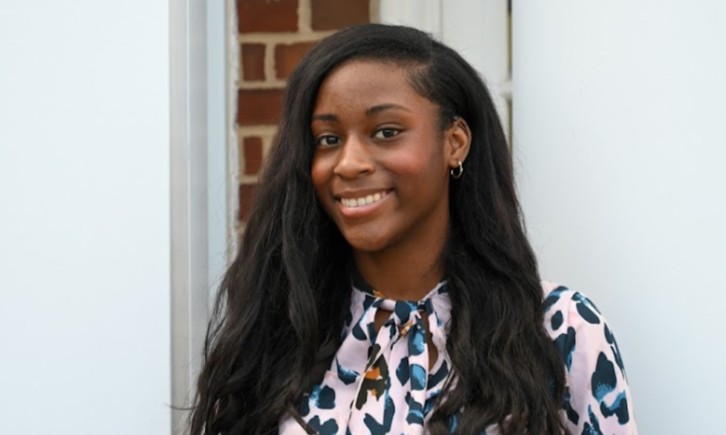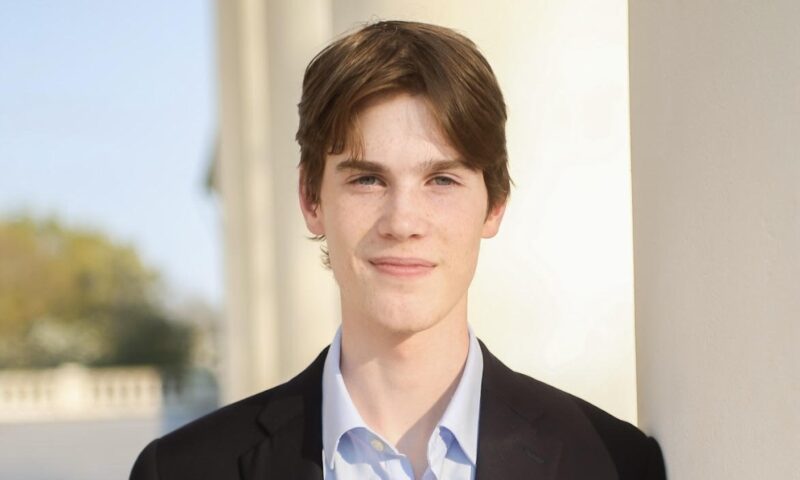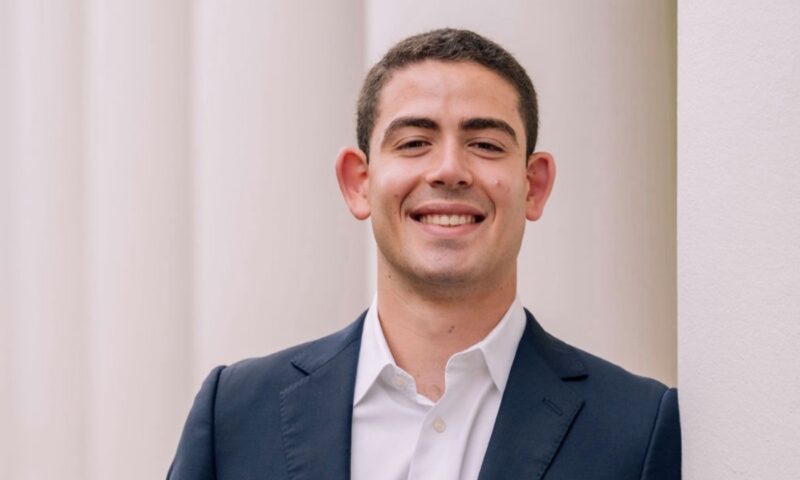Studying overseas for a semester can be electrifying, eye-opening, and in many cases, defined by moments in which undergrads discover as much about a new culture as they do about themselves—and what they want from their future.
The many positive experiences from being abroad may also come with challenges after the fact. Students returning from bustling urban areas around the world to the relaxed pace on Grounds sometimes contend with unexpected issues: restlessness, a kind of reverse culture shock and homesickness for their former temporary home city, as well as alienating feelings, when they need a little time to readjust to life around the Lawn, that their peers who hadn’t immersed themselves for months in a new culture can’t quite understand.
According to Ryan Hathaway, Assistant Director of Global Programs, for many students, the ability to easily use their faraway location as a home base to visit other parts of the globe while studying abroad can make it difficult for students to downshift to being back at UVA and a more traditionally American college experience.
“Many of our students spend their semester abroad in large metropolitan cities and also take advantage of opportunities to travel to other countries or regions during free weekends, so their time abroad is filled with feelings of excitement and independence,” he says, explaining that there’s an exploratory feature to regularly meeting new people, navigating new systems, and discovering new places. “So coming back to the familiarity of Grounds and Charlottesville can lead to boredom and a longing for that sense of adventure.”
Hathaway and Anne Afriyie, Associate Director for Career Development, recently hosted a session to help ease these students’ transitions back to UVA and offer strategies for best applying what they’ve learned toward enhancing their early career prospects. We spoke to the two Comm School staff members and three McIntire Class of 2023 students—Aslan Abrishami-Azar, Kendall Joseph-Pierrot, and Fawzia Tahsin—about their reentry from study abroad and how their experiences translate into capabilities and strengths.
Going Abroad as the First Step of Many
In the fall of 2022, Abrishami-Azar attended IE University in Madrid, Spain. The shift away from living in a city and attending classes in a corporate building has been most difficult for him, as the lack of fast public transportation in Charlottesville has made it difficult to accomplish simple tasks like going to the grocery store. To his surprise, he says, being in Madrid was enthralling, without dangers often associated with urban environments.
But what stands out about his time on the Iberian Peninsula was a sense of freedom: “The most impactful part of my trip was my ability to travel solo for the first time in my life, overcoming those difficulties, and meeting other people with a great understanding of cultural nuance,” he says.
Studying in Vallendar, Germany, at WHU-Otto Beisheim School of Management last semester, Joseph-Pierrot agrees, having become accustomed to the uncomplicated nature of movement both within and outside of his adopted German hometown. “The most difficult adjustment is probably not having the ease of travel that I got used to, whether that be via the buses, trains, or cheap flights.”
Yet his time in the town of Vallendar and absorbing its culture “rather than just reading or watching videos about it” offered a significant series of moments that defined his time in Europe, connecting him to a larger, international network: “It was insightful to meet so many people around the world and hear about their experiences. I have started to make a better effort to pay attention to what happens around the world. Many people I met were very informed about global events, which made me realize how much I can still learn,” he says.

Fawzia Tahsin at Gyeongbokgung Palace, in Seoul
For Tahsin, who attended Korea University in Seoul, South Korea, the change in course deliverables was notable, as the Comm School’s pedagogy contrasted sharply with her Korean school: “My grades consisted of a midterm, final, and one group project. Class was very lecture heavy; at McIntire, there are a variety of discussions, hands-on projects, and assignments.” Leveling back up to the high expectations of Comm classes took some getting used to.
Returning from a large city to a college town brought a change in how she spent her free time, “doing small things with friends on the weekends instead of going to a whole new city two hours away every weekend.” Like her peers, the ability to explore is something she’ll miss. “Seoul is such a diverse and fun city. I was able to explore the city, with its street food, shopping malls, museums, but also mountains and parks, all within a 20-minute subway ride. I explored as much as I could in four months, but I didn’t even come close to exploring half the city.” She notes how, because of the safe and available travel factor, social interactions among students are notably different. “On Grounds, most people talk about their classes, extracurriculars, and such, but being abroad, everyone is talking about their ‘next big travel plan.’”
It’s because of that change that Hathaway suggests students look at Central Virginia with a new lens, urging them to bring that same level of curious energy back with them. “Many realize that there are numerous local opportunities, events, and places to discover that they had previously overlooked.”
A Broad Set of Skills
Afriyie says that after studying abroad, fourth-years can rely on their newly acquired flexibility and creativity to become agile job seekers and stress to potential organizations their ability to quickly get up to speed in whatever roles they pursue after graduating.
“Students learn to problem solve everything from not having international phone service to adapting to a completely different style of learning,” she says, pointing out that it’s a type of “forced ingenuity” that can’t be replicated in a classroom. “They learn to truly integrate into a different society, sometimes not even knowing the language. Studying abroad is a system of constant feedback, with students learning like drinking from a firehose. Being nimble and open to change are invaluable traits in the workplace.”
Hathaway feels that soft skills gained by navigating a foreign environment also provide a cultural fluency and “a recognition of a broader perspective on the world” that will be incredibly useful to students in their post-UVA careers.
Those skills appeal to employers in across industries, and Afriyie says that cultivating a range of perspectives and backgrounds often makes these students strong candidates in multiple sectors. But she offers specific areas that have traditionally sought them out: “Consulting companies really value diversity of thought and are looking for students who have had varied experiences. Many financial institutions, brand management companies, tech firms, and marketing firms have global hubs and actively look for folks with those international experiences,” she says.
In the short term, Hathaway provides some tactical solutions to overcoming the readjustment to being back, including writing about their time away, befriending a recently arrived international student, volunteering to work with global and cultural student clubs, and even preparing to study abroad again. Ultimately, it’s important for students to spend necessary time evaluating what they have observed, learned, and accomplished on their journeys.

Aslan Abrishami-Azar in Madrid
“In our reentry programming, we encourage students to reflect on those outcomes and consider how they articulate their experience to others after coming home. It’s natural to talk about how fun and amazing being abroad was, but it’s so much more compelling to really drill down into how that experience will continue to impact you.”
Ready to Go (Again)
It’s clear that studying abroad has had an outsized influence on the goals and plans of the students with whom we spoke. Abrishami-Azar says that, thanks to a semester in Spain, he intends to live and work outside of the U.S., explaining that he hopes to “take opportunities to constantly travel,” such as the Costa Rica Global Commerce Immersion course he’ll be participating in during spring break, and for which Hathaway will also be participating as a program assistant.
Joseph-Pierrot is similarly convinced: “I’ve always wanted to travel in my professional life, but now I would say that this idea has been reinforced. It has essentially become a requirement in my future career.”
Tahsin, too, feels that learning on another continent has proven to be nothing less than “life-changing” for her. Having grown on a personal level, she’s developed a keen interest to visit and participate in other cultures, hopes to work abroad temporarily, and credits her time studying abroad with her new worldview and vision of herself. “I am grateful to have been able to go to Korea University. I was able to push myself out of my comfort zone and experience another culture on the other side of the world.”



